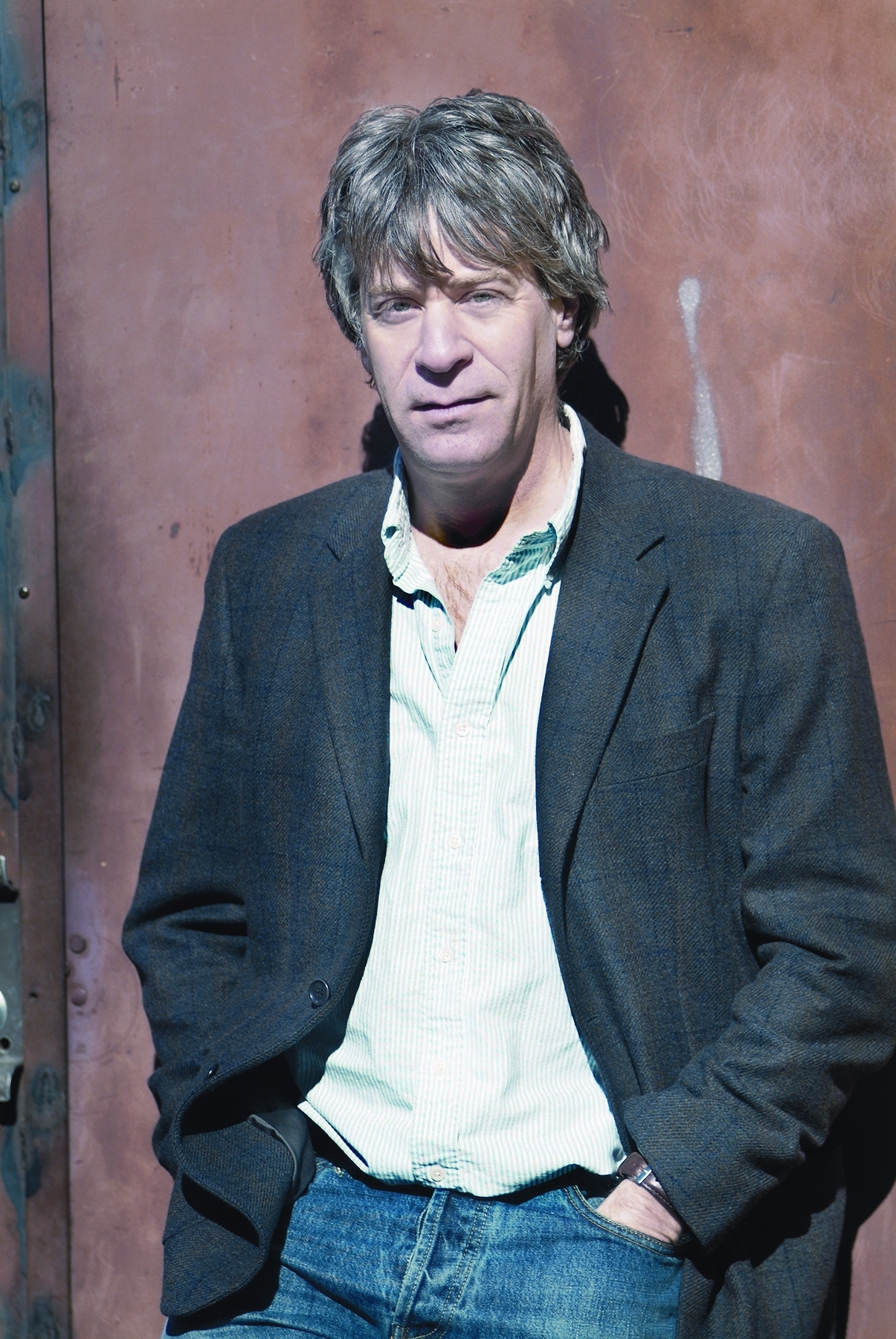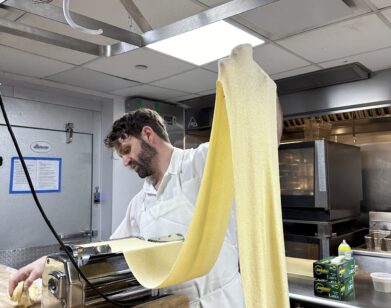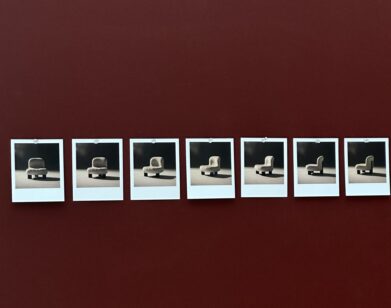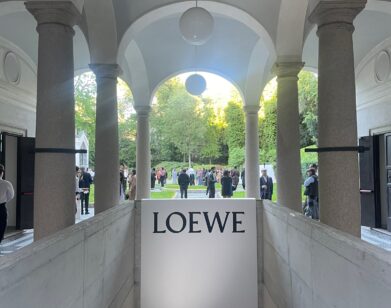Lawrence Douglas’ Vice Squad

LAWRENCE DOUGLAS. PHOTO COURTESY OF FRED WARD
More people check into five-star hotels to commit suicide than you’d think. In Lawrence Douglas’ The Vices (Other Press), Oliver Vice boards luxury ocean liner Queen Mary 2, then plunges into the icy waters of the Atlantic. Unsure whether Oliver’s death is an accident or a desperate act, we soon discover nothing in his life was simple. Smothered by money, mistresses, a devastatingly beautiful mother and manic-depressive twin brother, Oliver’s only lasting connection is to his best friend and narrator, who remains unnamed throughout the darkly comic novel.
Our narrator, whose own life has been fractured by Vice’s actions, is consumed by the desire to excavate his friend’s family past. Yet he is drawn toward a lush and exotic world of secrets, psychiatric wards, seduction and high-end auction houses—all of which lead to some disturbing revelations about the nature of Oliver’s wealth. Douglas, the author of 2006 novel The Catastrophist as well as several scholarly works, masterly crafts a family portrait, where the paint has cracked to reveal human truths. We talked with Douglas about the power of the dollar, having endless amounts of money to pursue pleasure, what really goes on in drawing rooms, pathological liars, and what makes a person’s life worthy of legend.
ROYAL YOUNG: Are rich people more seductive than most?
LAWRENCE DOUGLAS: I don’t necessarily think it’s just rich people. I think it’s rich people with history.
YOUNG: Like a family crest?
DOUGLAS: Yeah, exactly. Rich people with long generations of Middle Europa ingrained in them and generations of mental illness. But there also has to be a necessary mix of ability and talent. Usually which has been squandered in some profligate fashion.
YOUNG: Does money always come with misery?
DOUGLAS: If it doesn’t, then it’s not at all interesting and it’s not at all fair. It seems if you have all this money, and no misery, you’re really in a world of unalloyed happiness, and that seems to violate some deep principle of universal justice. We tend to live in a culture now where people have unbelievable, inconceivable amounts of money without any kind of remorse.
YOUNG: What about madness? Does that always come with money?
DOUGLAS: I don’t think it always comes with money. But the first word you used was seductive, and I think there’s something very seductive about that mixture. It seems when the madness sets in, it’s never the first generation that acquired the wealth; they had to be quite savvy. That savvy-ness probably meant you were some sort of alpha person. That alpha stuff in the later generations, you still have the intelligence, but it tends to manifest itself in bipolar disorders and inestimable amounts of depression.
YOUNG: What happens when a person has unlimited resources with which to indulge their eccentricities?
DOUGLAS: The character in my book, Oliver, he clearly is very, very ambivalent about having those kind of resources, and his hero is Wittgenstein. Wittgenstein actually did something where he gave away a lot of his money, and he also, in a kind of pathetic effort to pretend he was a normal human being, went off to go and teach school children, which ended in absolute catastrophe. It does seem like if you’re an interesting person and you have endless amounts of money to indulge your fantasies, then those fantasies will be plagued with guilt about that level of indulgence. It really becomes a self-defeating exercise in pursuing hedonistic desires in any sort of normal or guiltless fashion.
YOUNG: Do you think money always stamps you, even when you give it away? Once you’re brought into that life, is there any escaping?
DOUGLAS: I do think it’s interesting when people are born into families that at one point had huge amounts of money and that money has kind of vanished over the generations and they’re sort of the last vestiges. You see that these people live really quite modestly and yet, somehow the way the clothes fit them, they still have some kind of strange genetic advantage over the rest of us. There’s always these weird things in which you detect the legacy. There’s a pair of cufflinks that you look at and go, “Oh, my God! These had to come from the Romanovs.”
YOUNG: [laughs] I’ve seen exactly what you’re talking about. What is the difference between aristocratic depression and the neuroses of the middle classes?
DOUGLAS: [laughs] Neuroses of the middle classes are just incredibly tedious, things like soccer-mom stuff. With middle-class neuroses, everything is always too brightly lit, and it’s usually in a kitchen or near a swimming pool. Aristocratic depression usually takes place in rooms with fading light.
YOUNG: Aristocratic depression is usually in the drawing room.
DOUGLAS: Exactly. One of these words we don’t even know what it means. What is a drawing room? No one draws in a drawing room. I don’t think I’ve ever been in a drawing room.
YOUNG: Do you think that’s because aristocrats can afford depression on a larger scale?
DOUGLAS: Yeah, I guess if you’re not always in this obsession over how little Debbie is going to get to her Suzuki lesson on time, which is very middle-class. Aristocratic depression has this cosmic dimension to it, where it’s asking these big questions about, “Why?” “What is the purpose of all this?” Neuroses of the middle class is the banishment of aristocratic depression, because it’s kind of this obsession with quotidian detail that pushes these larger questions away.
YOUNG: And in terms of living on a grand scale, these rich people also seemingly come into contact with rock stars and celebrities constantly.
DOUGLAS: Yes, I think for much of the middle classes, nothing could be more fantastic than to have this contact with fame. But once you have that contact with fame and find out how vacuous it is, that it doesn’t answer anything or supply any ultimate revelation to cosmic dilemmas and you’re still left with yourself, then it’s back to the drawing room with fading light and one light bulb out in the very expensive chandelier that no one has bothered to replace.
YOUNG: How often do we creatively self-fashion myths about our lives?
DOUGLAS: I hope we do a lot of it. Nothing is drearier than just always telling the truth about yourself. Rousseau, who as far as I can tell was a pathological liar, made this wonderful distinction between lying, which he said there was something wrong with if you were trying to extract an advantage for yourself or evade responsibility for some nasty thing you’d done. But if all you’re really trying to do is impress or keep it young or make life more vivid and interesting, go for it! There’s no real harm in doing something like that. I think people can be overly saddled to the truth.
YOUNG: What makes a person’s life worthy of legend?
DOUGLAS: It’s not success. It’s provocative defeat, someone who struggled mightily and lost. And that loss can’t just be gratuitous—there has to be something about his or her character that whittles that loss into something provocative.
THE VICES IS OUT AUGUST 16 FROM OTHER PRESS. FOR MORE ON THE BOOK, CLICK HERE.






